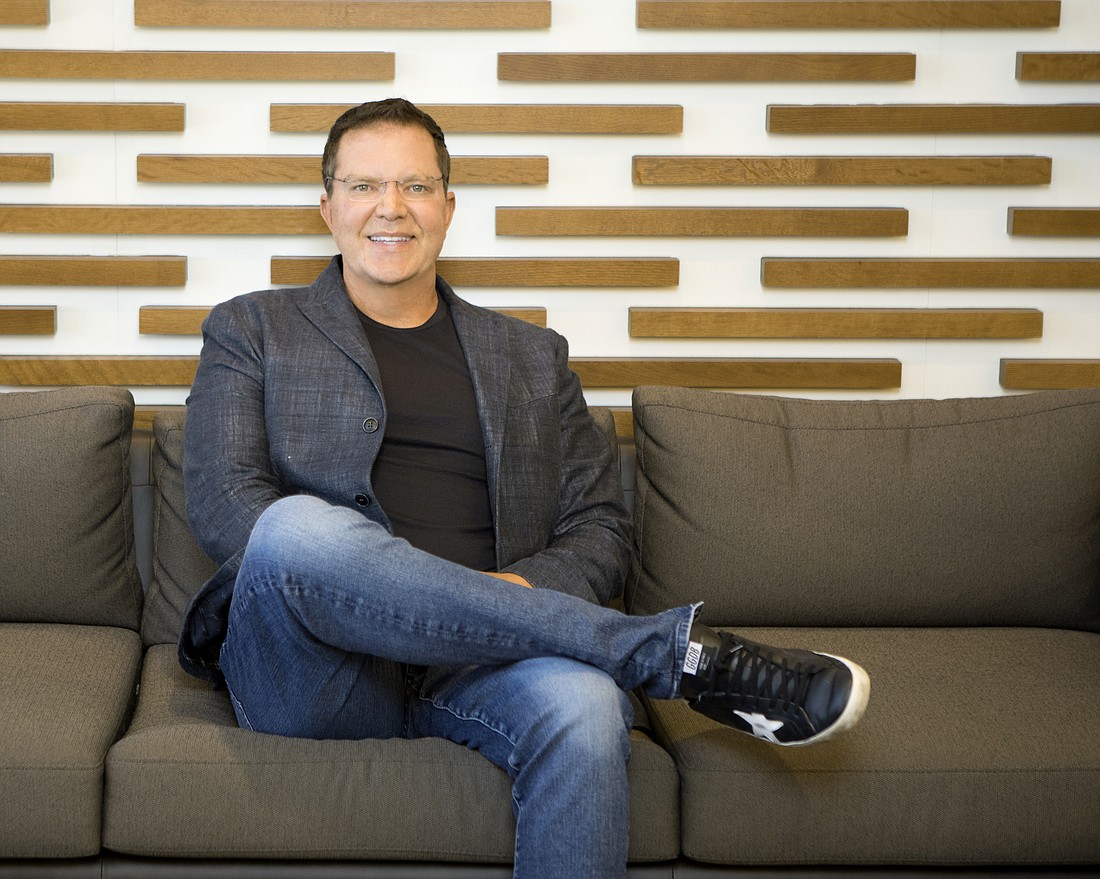In February, Tampa-based Slide Insurance grew by nearly $300 million in annual premiums, absorbing more than 91,000 policies from St. Petersburg-based UPC Insurance, a property insurance firm that got hit hard by Hurricane Ian-related damage claims.
Slide also announced it will accept new business, making it the first Florida-based insurer to do so in 2023, as the industry struggles to rebound from last year’s hurricane-related losses and the state Legislature grapples with sky-high attorney fees and frivolous lawsuits.
The UPC additions come about a year after another deal, from March 2022, when Slide acquired $400 million worth of premiums from Orlando-based St. Johns Insurance Co., which ceased operations after a ratings agency downgraded it. Today, under the leadership of founder and CEO Bruce Lucas, the company now boasts 175,000 policies covering homeowners in Florida and South Carolina.
It's an interesting time, with the Florida property insurance market in such disarray, to take on so many policies from troubled competitors. Yet Lucas, an innovative insurance industry veteran who founded Slide in 2021, says he’s not too worried about the risk. That's mostly because of the strategic way the company uses data to examine whether policy absorptions will benefit Slide.
“Slide's selective underwriting criteria results in the company only selecting policies that are a fit for the company's long-term business plan,” Lucas says. “Additionally, recent reforms passed by the Florida Legislature will have a tremendous impact on preventing fraud and frivolous litigation that has roiled the Florida [property] insurance market. These reforms will result in more sustainability and lower risk for consumers and insurers.”
Slide's business plan, Lucas says, is tailored toward “Florida expansion and has been since its inception." The policies Slide issued in connection with UPC's receivership meet its “selective underwriting criteria and provide a basis for our Florida growth.”
Beyond absorbing policies from failed firms, natural disasters and financial malfeasance tend to wreak havoc on the Florida property insurance industry. But those things are not the biggest challenge to insurers, Lucas says.
"The big challenge is ... underwriting the right policy at the right price," he says.
So how do you fix that? You use math and data, Lucas says.
After working for a few years as Enron’s bankruptcy attorney after the recession of the late 2000s, Lucas decided to go into business for himself. A Hoosier who studied geology and then law at Indiana University, Lucas was good at math and decided to target an industry that needed more of it: Florida property insurance.
Most entrepreneurs would have been put off by Florida's property insurance industry, which is sometimes plagued with fraud, and routinely deals with sinkholes and water and wind damage from hurricanes. Lucas was not, and he saw potential for improvement in insurance profitability.
"I'm a huge numbers guy," he says.
Lucas founded Heritage Insurance Holdings Inc. in 2012. By 2020, he’d decided to move on from Heritage and launch a new insurtech venture, which was Slide. Insurtech leverages advanced software and algorithms to create efficiencies and better consumer opportunities in the industry, much the same way fintech does in financial services.
A key to Slide's success is the $6 trillion in data sets it has acquired to examine the market. Some of that data came from Heritage, Lucas says. The data allows tech-driven analyses to automate the process of quoting prices via computer-assisted underwriting.
Lucas believes the technology will help improve underwriting in ways only computers can.
“Slide's dataset is used to develop proprietary underwriting technology that helps in the assessment of risk,” he says. “With a better understanding of the underlying risk, we are able to make better underwriting decisions.”
Given the proprietary nature, Lucas offers little details about Slide’s algorithms and software. But the benefits of partnering with the company have already convinced rivals to help with data sets. Heritage, Lucas’s old firm, for example, thought it could gain from the insurtech analysis, and sent over its data sets.
“While I can’t speak on behalf of Heritage, our understanding was that Heritage saw strategic value in the development of the underwriting technology," Lucas says, "and for that reason wanted to partner with Slide."






